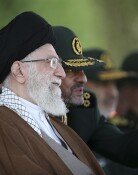[Editorial] Securing Energy Sources
[Editorial] Securing Energy Sources
Posted August. 23, 2007 07:26,
Starting at 9:00 p.m. on August 22, lights went out for five minutes at major government offices, companies, and over 570,000 houses across the nation, including the capital, Seoul. The five-minute blackout is an annual routine commemorating August 22, the day set to raise public awareness on energy issues and conservation. August 21 recorded the forth highest nationwide power usage this summer, due to sweltering weather increasing demand. Similar to power consumption, carbon dioxide emissions in Korea increased by 104 percent over the past 15 years; the fastest among OECD (Organization for Economic Cooperation and Development) member countries.
Many people might have experienced coldness at excessively air-conditioned offices, restaurants, or concert halls. It seems that too much power is being wasted in a country that cannot afford to produce even a drop of oil. Maintaining indoor temperature at the recommended level of 26 degrees Celsius is not a hard job. Anyone can easily practice energy conservation by using highly efficient lights, multi-taps, and public transportation, putting on long johns, or installing windscreens. The Korea NGOs Energy Networks website (www.100.or.kr) displays such easy energy saving measures. Although the climate is going sub-tropical, dramatically expanding energy use, reckless use of energy will only accelerate global warming. The vicious cycle must be stopped.
Korea has an energy-intensive industrial structure. Thus, the government should lead the reorganization of industrial structure and actively participate in global climate change conventions.
Energy policies should consider both supply and demand. Countries across the world, including the U.S., are engaging in intense energy diplomacy to secure energy resources, even going to the length of changing partners and allies. Korea had welcome news that gas reserves in Myanmar discovered by Daewoo International co. are the largest among discoveries by Korean companies. Still, energy development other than oil accounts for a meager 0.1 percent of Koreas GDP; far lower than the five to six percent of the oil refining industry.
In times of high oil prices, it is worth noting the growing proportion of nuclear energy in energy consuming countries. Nuclear energy, if safely managed, makes the best economic sense and does not produce CO2. Various energy sources other than fossil fuels are also well advised. Now is the time for Korea to secure energy sources as part of the nations long term strategy.







